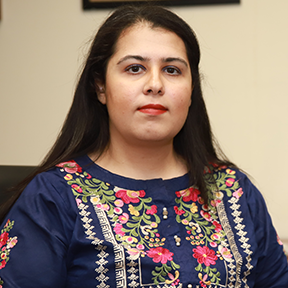Summary: We examine how citizens can hold policy actors accountable for public service delivery. We do so through a randomized control trial that introduces community-based mobilization interventions to improve public schooling in Pakistan. We vary these interventions by: (i) policy actor type – whether citizens approach a bureaucrat directly or exert pressure through a political route and (ii) citizen gender – whether the citizens participating are women or men. In addition, for each we also include a variation in which citizens’ interaction with the policy actor is more directly supported and facilitated by our NGO partner – National Rural Support Programme (NRSP). We examine impacts on citizen political awareness and action, policy actor response, and public school/educational outcomes.
An Ongoing Study: Parental Political Engagement and Public Service Delivery
Saher Asad
Asim Khwaja
Tiffany Simon
Citation: Asad, Saher, Asim khwaja, and Tiffany Simon. 2022. “Parental Political Engagement Project“. Ongoing Study.
Widespread previous research shows that improving public service delivery can support economic and social development and strengthen citizen-government linkages, particularly in developing country contexts. Public education in Pakistan presents an ideal case for examining citizen participation and how it can impact policy outcomes. Evidence suggests that citizens care deeply about this policy issue, and that citizens are effective monitors of public service delivery. Policy actors in Pakistan – bureaucrats and politicians – are keen to at least portray that they are communicating with citizens. However, citizens face multiple barriers to engaging with government representatives; including due to lack of access, poverty, low education, and low information levels. Given these obstacles, our project aims to examine how citizens can effectively hold government representatives accountable and advocate their policy preferences, addressing questions of how citizen participation in the policy process can impact outcomes and citizen satisfaction across varying demographics, information levels and efficacy levels.
Our intervention consists of a series of community meetings led by trained social organizers which help to overcome both the informational and coordination constraints preventing citizens from engaging with government actors regarding policy preferences. These meetings serve to mobilize women and men to engage with government actors through consensus-building and message construction activities.
We vary our treatment along the two dimensions or actor type (politician or bureaucrat) and the citizen gender in attendance at community meetings. In addition, we add a variation to all our interventions in which our implementing partner, National Rural Support Programme (NRSP), directly works with the local communities in constructing their message and accompanies them in the delivery of the message to the relevant policy actor.
Our findings from piloting this intervention include:
Education is a priority policy area bound by constraints: Our pilot work in 28 villages in Punjab confirms that education is indeed a priority for citizens in rural Punjab. Both male and female participants in community meetings recognized the importance of education and raised schooling concerns. Our fieldwork also confirms that citizens face challenges in effectively engaging with politicians and bureaucrats on these issues due to information and coordination constraints. Citizens highlighted that politicians are rarely accessible outside of electoral cycles, and participants often had low awareness of relevant administrative hierarchies, who are the right people to reach, and how bureaucratic and political processes function.
Female civic participation is constrained by social and cultural norms: Our fieldwork has also shown the importance of considering gender in designing our intervention. Consistent with findings from the LEAPS study (2008), mothers tended to be more knowledgeable of school shortcomings, such as teacher absenteeism and infrastructure issues, than fathers. However, women were more likely to face issues in accessing policy actors. In addition to limited geographical mobility, women reported that it is looked down upon in their village for women to engage with men.
Differential incentives and effectiveness of bureaucrats and politicians: Our key informant interviews with policy actors emphasize their differential incentives and effectiveness, and therefore the need to account for these in our study design. While politicians seem more responsive to constituent needs, they cite bureaucratic obstacles in resolving issues related to education. In contrast, while those within the education bureaucracy can directly address school issues, they cite political interference and seem to display less engagement with parental concern and complaints.
We will examine the impact of our study along three main types of outcomes of interest using both household level surveys and administrative data:
Changes in individuals’ knowledge regarding policy actors and appropriate means of recourse, as well as self-reported sense of efficacy and willingness to engage in such actions
Impact of the intervention on actions taken by community members to address specific issues they face in education
Policy actors’ response to the issues raised by citizens and the extent to which these issues are ultimately resolved
In addition, we will examine whether these interventions more broadly affect citizens’ views regarding trust in policy actors and the state overall. We also intend to measure the quality and outcomes of our community meetings through observational and monitoring data on the number of participants, diversity of participants, and quality of discussion and participation. Finally, as 2023 is an election year in Pakistan, we intend to examine whether our intervention has any impact on voter turnout and politician turnover.
Study Design and Pilot Findings
Study Resources
The following resources are for public use in presentations, papers, lectures, and more under the Creative Commons license BY-ND. Click the images below to view or download individual images, or use the button to download all.
As a condition of use, please cite as: Asad, Saher, Asim khwaja, and Tiffany Simon. 2022. “Parental Political Engagement Project“. Ongoing Study.









